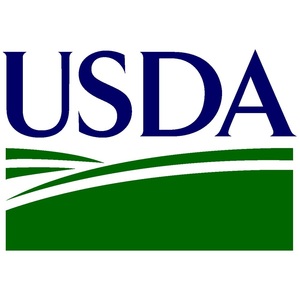USDA publishes final rule for 9003 loan guarantee program

May 22, 2020
BY Erin Krueger
The USDA’s Rural Business-Cooperative Service and Rural Utilities Service on May 18 published a final rule for the Biorefinery, Renewable Chemical, and Biobased Manufacturing Assistance Program in the Federal Register. The final rule incorporates the statutory definition changes as required by the 2018 Farm Bill and with one exception, adopts the interim rule published in mid-2015.
The program, previously known as the 2009 Biorefinery Assistance Program, was first established by the 2008 Farm Bill and provided loan guarantees for the development, construction and retrofitting of commercial-scale bioreinfeires using eligible technologies for the production of advanced biofuel. The 2014 Farm bill changed the program’s name and expanded the program to include the production of renewable chemicals and biobased product manufacturing. The 2018 Farm bill again reauthorized the program and amended the definition of the terms biorefinery and eligible technology.
The final rule defines a biorefinery as a facility, including equipment and processes, that converts renewable biomass or an intermediate ingredient or feedstock of renewable biomass into biofuels, and/or renewable chemicals, and/or biobased products. The facility may also produce electricity. Eligible technology is defined as a technology that is being adopted in a viable commercial-scale operation of a biorefinery that produces an advanced biofuel, and/or renewable chemical, and/or biobased product, and as a technology that has been demonstrated to have technical and economic potential for commercial application in a biorefinery that produces an advanced biofuel, and/or renewable chemical and/or biobased product.
According to the USDA, the non-statutory change to the 9003 program is a shift in timing for the requirement of the applicant to demonstrate 120 days of continuous, steady production from an integrated demonstration unit. Such demonstration was previously required prior to loan closing, but will now be required prior to the issuance of a conditional commitment, which is the agency’s notice to the lender that the loan guarantee is approved subject to the completion of all conditions and requirements set forth by the agency. The USDA said the change will require the borrower to provide evidence to the lender and agency of 120 days of continuous, steady-state production from an integrated demonstration unit prior to the issuance of a conditional commitment. The USDA said it believes the change will decrease the time between the issuance of a conditional commitment and loan closing and lessen the credit risk to the government.
Advertisement
Advertisement
Additional information is available on the Federal Register website.
Advertisement
Advertisement
Related Stories
The U.S. EPA on July 8 hosted virtual public hearing to gather input on the agency’s recently released proposed rule to set 2026 and 2027 RFS RVOs. Members of the biofuel industry were among those to offer testimony during the event.
The USDA’s Risk Management Agency is implementing multiple changes to the Camelina pilot insurance program for the 2026 and succeeding crop years. The changes will expand coverage options and provide greater flexibility for producers.
EcoCeres Inc. has signed a multi-year agreement to supply British Airways with sustainable aviation fuel (SAF). The fuel will be produced from 100% waste-based biomass feedstock, such as used cooking oil (UCO).
President Trump on July 4 signed the “One Big Beautiful Bill Act.” The legislation extends and updates the 45Z credit and revives a tax credit benefiting small biodiesel producers but repeals several other bioenergy-related tax incentives.
CARB on June 27 announced amendments to the state’s LCFS regulations will take effect beginning on July 1. The amended regulations were approved by the agency in November 2024, but implementation was delayed due to regulatory clarity issues.
Upcoming Events










